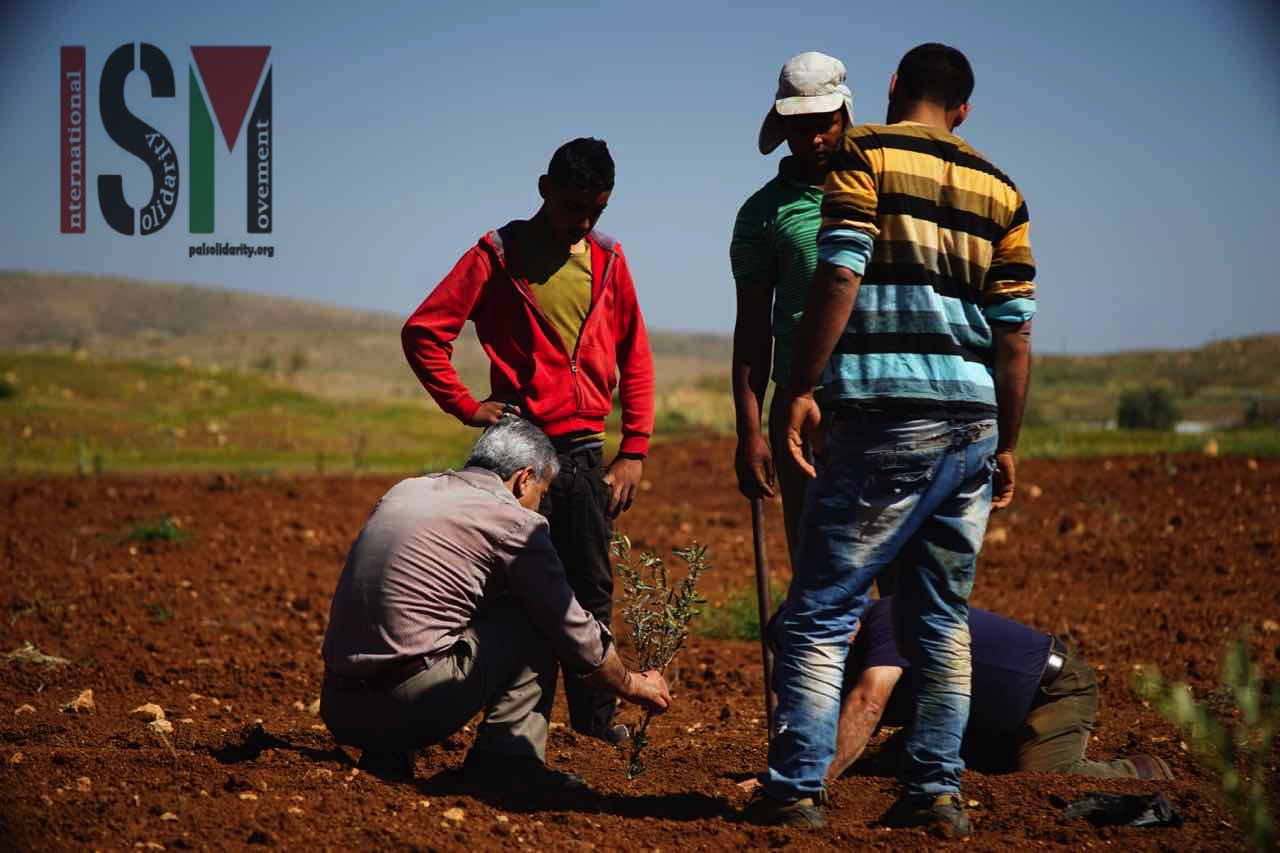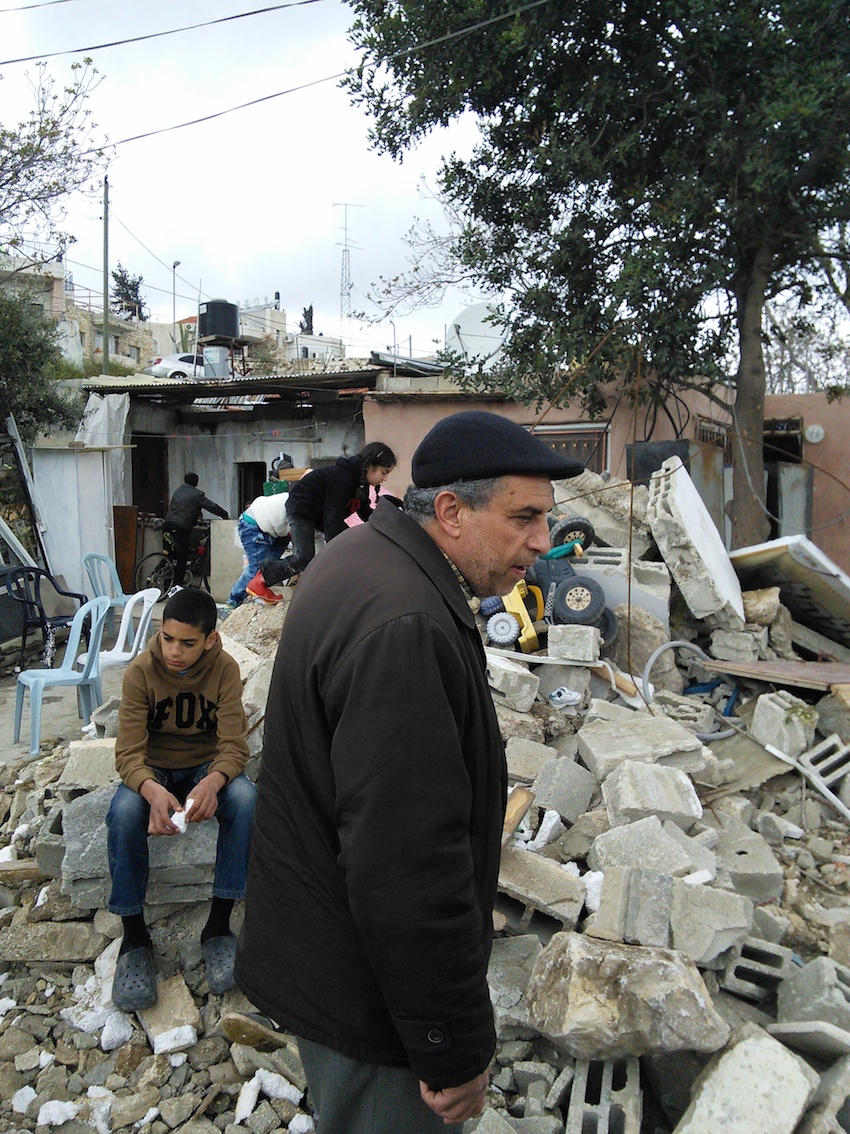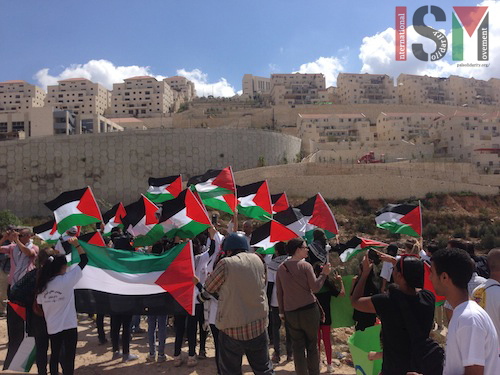Tag: Land confiscation
-
Olive tree planting connects Palestinians in the Jordan Valley
2nd April 2016 | International Solidarity Movement, Ramallah Team | Jordan Valley, Occupied Palestine On Saturday 2nd April, Palestinians and international activists alike worked together in solidarity to plant olive trees in the town of al-Bikaa in the Jordan Valley, the town falls under area C of the occupied territories. The act of planting the trees today was…
-
Home demolition in Jerusalem: “They want our land. We need help to protect it.”
1st April 2015 | Jerusalem, Occupied Palestine Nureddin Amro and his brother Sharif Amro and their families were awakened at 5:30 am by over a hundred Israeli soldiers who came to demolish their home in the Wadi Al-Joz neighborhood of occupied East Jerusalem on Tuesday, March 31, 2015. Both men are blind. The brothers live with their…
-
VIDEO: Israeli forces use violence against unarmed demonstrators attempting to plant olive sapplings in Wadi Foukeen
26th September 2014 | International Solidarity Movement, Khalil team | Wadi Foukeen, Occupied Palestine Wadi Foukeen is a Palestinian village just west of Bethlehem with a population of approximately 1,250 people. A weekly Friday demonstration has been organized by the village community against the Israeli occupation and in response to the recent land grab of 4,000…



